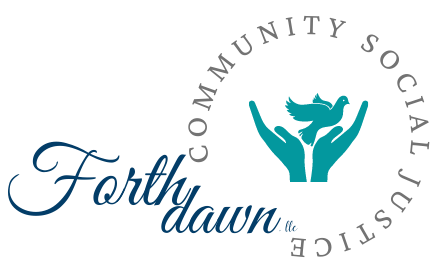Frequently Asked Questions
We Serve Our Community
These frequently asked questions are to help you understand key areas of our work.
The social justice audit process provides a framework for understanding, measuring, verifying, reporting on, and improving an organization’s social performance quotient. As such, it encourages an inclusive, participative and consensual organizational culture that promotes social responsibility, provides socially valuable services, and actions on social justice principles.
It is the extent to which an organization contributes to the economic, social, and environmental wellbeing of the communities, clients and staff it serves.
As the social justice movement continues to gain traction, organizations and communities are looking for ways to increase their social performance quotas – which is why social justice audits are becoming more popular – and for good reason: (1) They empower organizations to “walk the talk” of diversity, inclusion and equity by creating an intentional roadmap for operationalizing a robust commitment to social justice – a big draw for younger generations, who favor socially responsible brands and workplaces, (2) They provide a collaborative framework for galvanizing community members and employees across generations and at every level around socially responsible values, policies and projects – which, In turn, inspires team spirit and active engagement, and (3) They yield objective data to use for comparing effective social performance from year to year, to ensure continuous impact and commitment.
Evidence-informed practice (EIP) is a model that incorporates best available research evidence; client's needs, values, and preferences; practitioner wisdom; and theory into the clinical decision-making process filtered through the lens of client, agency, and community culture. Source: https://bit.ly/3vCovH5
Coaching is defined by the International Coaching Federation as "partnering with clients with clients in a thought-provoking and creative process that inspires them to maximize their personal and professional potential." We honor our clients as the expert in their lives and professions, and we believe that every client is creative, resourceful and whole.
As we define it, technical assistance is expert support, designed to help organizations and communities meet their unique social justice goals, by connecting the dots among research, policy and practice. For example, we might work with you to review your employment policies and practices; perform a community needs assessment; frame your social justice “message;” or update your strategic plan to reflect your focus on diversity, inclusion and equity.
Collateral consequences are legal and regulatory restrictions that limit or prohibit people convicted of crimes from accessing employment, business and occupational licensing, housing, voting, education, and other rights, benefits, and opportunities. Some collateral consequences serve a legitimate public safety or regulatory function. Others are directly related to a particular offense, such as registration requirements for sex offenses or driver’s license restrictions for people convicted of serious traffic offenses. But some collateral consequences apply without regard to the relationship between the offense and opportunity being restricted, such as the revocation of a business license after conviction of any felony. Frequently consequences also apply without consideration of the time passed between the conviction and the opportunity being sought or the person’s rehabilitation efforts since the conviction. Source: https://bit.ly/3g1HJ2n
The act of treating a person differently, whether positively or negatively, based on social identities such as race, religion, financial status, customs, culture, gender, age, sexual orientation or past mistakes. Often the prejudicial treatment is based on a subconscious supremacy standard whereby the individual engaging in discriminatory behavior unknowingly perceives those from backgrounds different from his or her own as morally or intellectually inferior. Social discrimination is most prevalent in daily interactions that are rivalrous in nature, even if the rivalry is subtle. For example, two employees of similar rank who work together on a project may subconsciously judge the other to be inferior based on subjective characteristics, leading to biased treatment aimed at subordinating the other to an inferior rank or position.




